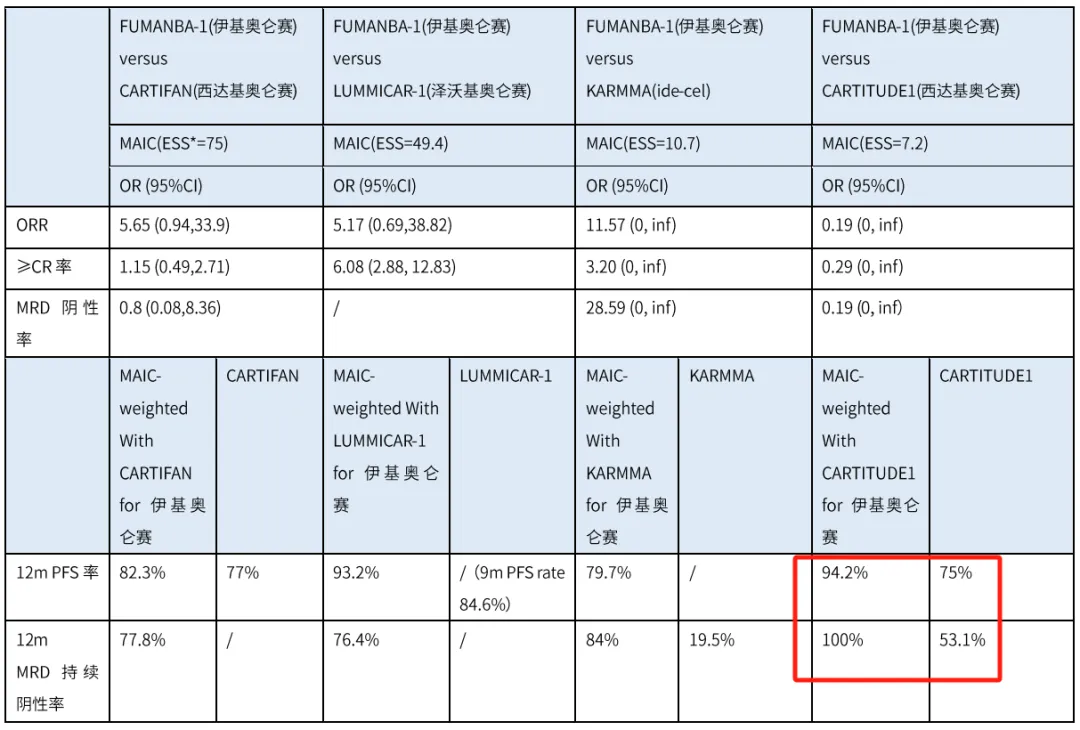
On April 9, 2024, the U.S. Food and Drug Administration (FDA) approved Abecma (idecabtagene vicleucel) as a personalized CAR T-cell therapy for the treatment of triple-exposed relapsed or refractory multiple myeloma.

On April 9, 2024, the U.S. Food and Drug Administration (FDA) approved Abecma (idecabtagene vicleucel) as a personalized CAR T-cell therapy for the treatment of triple-exposed relapsed or refractory multiple myeloma.

To date, four BCMA CAR-T products have been approved globally for the treatment of adult relapsed or refractory multiple myeloma (RRMM), but there have been no head-to-head studies comparing the efficacy of these products.

Abecma is a CAR-T cell immunotherapy targeting BCMA, which is expressed on the surface of multiple myeloma cells. Abecma can recognize and bind to BCMA, leading to the proliferation and differentiation of CAR-T cells, subsequently killing cells expressing BCMA.

Abecma is the world’s first approved BCMA-targeted CAR-T cell therapy, co-developed by Bristol Myers Squibb (BMS) and Bluebird Bio. It is a first-in-class, BCMA-directed, personalized immune cell therapy administered as a one-time intravenous infusion for the treatment of patients with relapsed or refractory multiple myeloma (MM) after three or more prior lines of therapy.

On March 26, 2021, Abecma® (Idecabtagene Vicleucel, ide-cel) received approval from the U.S. Food and Drug Administration (FDA) for the treatment of adult patients with relapsed or refractory multiple myeloma after four or more prior lines of therapy, becoming the first FDA-approved CAR-T cell immunotherapy targeting the B-cell maturation antigen (BCMA).

On August 19, 2021, Bristol Myers Squibb announced that the European Commission (EC) has granted conditional marketing authorization for Abecma (idecabtagene vicleucel; ide-cel).

On April 4th, 2024, Abecma® (idecabtagene vicleucel) received approval from the U.S. Food and Drug Administration (FDA) for the treatment of adult patients with relapsed or refractory multiple myeloma.

CAR-T cell therapy has emerged as a novel immunocellular therapy in recent years. BCMA-targeted CAR-T cell therapy has become a standard treatment for relapsed/refractory MM, with some patients achieving the possibility of “clinical cure.”
By using our site, you agree to our Terms and Conditions and Privacy Policy.Advanced Medicine In China does not provide medical advice, diagnosis, or treatment. The information provided on this site is designed to support, not replace, the relationship that exists between a patient/site visitor and his/her existing physician.
© Copyright 2023 Advanced Medicine In China. All rights reserved.